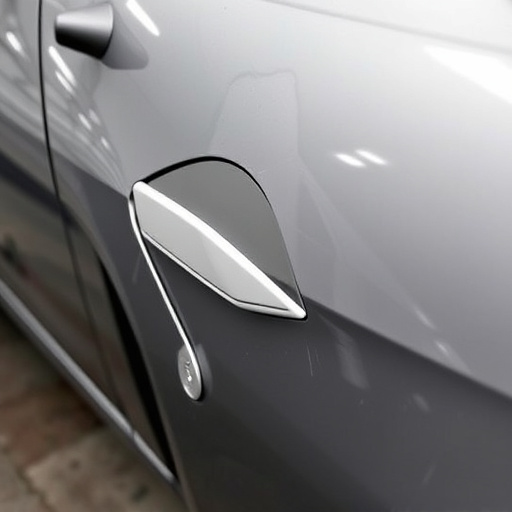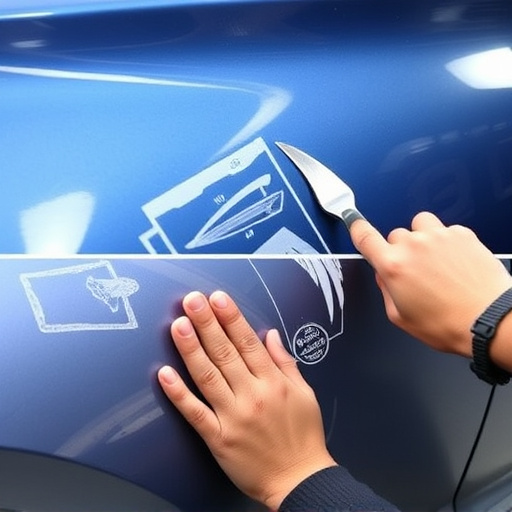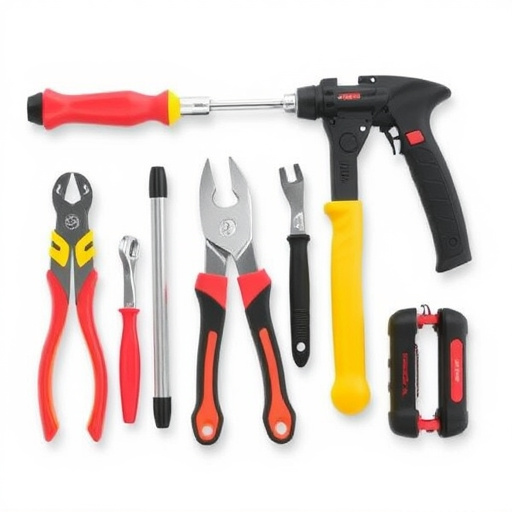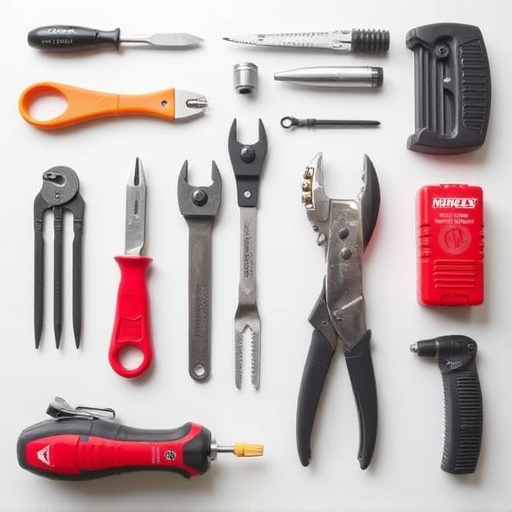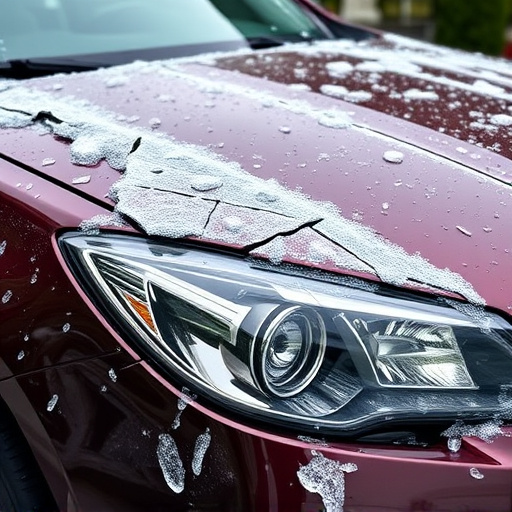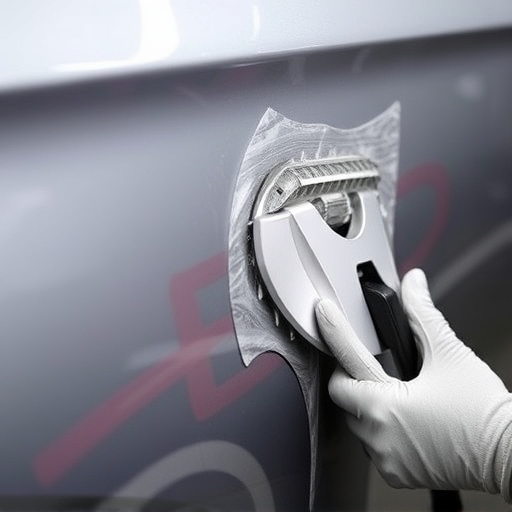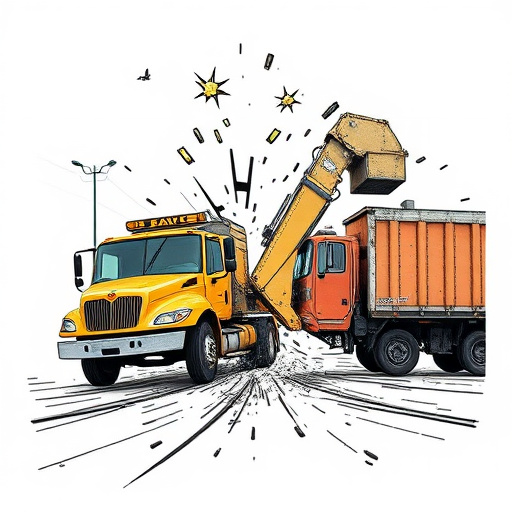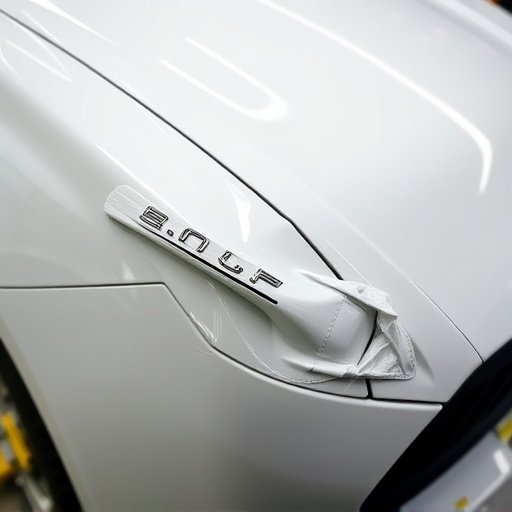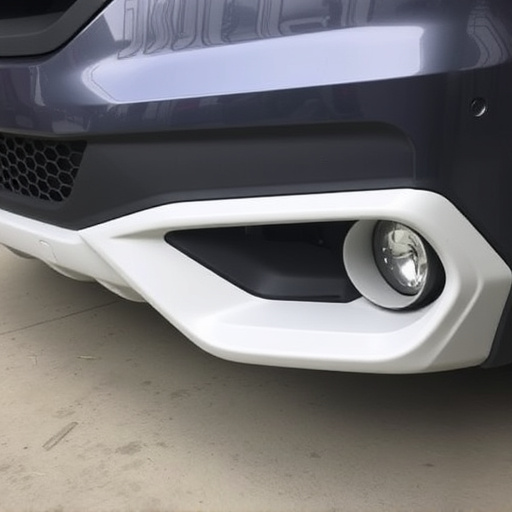Regular brake system collision checks are essential for vehicle safety and reliability, detecting wear and damage in components like pads, rotors, calipers, and hydraulics to prevent accidents, reduce costly repairs, and enhance fleet management practices. These inspections save lives, extend brake lifespan, and facilitate proactive maintenance across various vehicle systems.
Regular brake system collision check inspections are an essential safety measure that cannot be overlooked. In today’s world, where road conditions vary dramatically, keeping your vehicle’s braking system in optimal condition is paramount. This article delves into the significance of these checks, highlighting how they prevent catastrophic collisions and save lives. We’ll explore the benefits of routine inspections and provide best practices for effective maintenance, ensuring your peace of mind on the road.
- Understanding Brake System Collision Checks
- Benefits of Regular Timely Inspections
- Best Practices for Effective Collision Check Maintenance
Understanding Brake System Collision Checks

A brake system collision check is a critical safety measure that involves examining and testing your vehicle’s braking mechanism to ensure it functions optimally and safely. This process goes beyond a routine service check, focusing specifically on identifying potential issues that could impact braking performance, especially in the event of a collision. It includes scrutinizing various components such as pads, rotors, calipers, and fluid levels, among others, to guarantee their integrity and condition.
Regular brake system collision checks are essential for both personal vehicles and fleet repair services, as they help prevent catastrophic car damage repairs. In the automotive repair landscape, these inspections can be life-savers by identifying worn-out parts before they fail, thus averting accidents and protecting drivers from serious injuries. By staying on top of brake health, owners can ensure their vehicles are in peak condition, enhancing safety on the road and promoting efficient fleet management practices.
Benefits of Regular Timely Inspections

Regular timely brake system collision check inspections are a crucial aspect of vehicle maintenance that cannot be overlooked. These thorough checks ensure the optimal performance and safety of your car’s braking mechanism, which is paramount in preventing accidents and saving lives. By conducting these inspections at recommended intervals, drivers can mitigate the risk of unexpected failures, as well as identify potential issues early on, avoiding costly repairs and more severe collisions.
Beyond enhancing safety, routine brake system collision checks offer several other benefits. They help extend the lifespan of your brakes, reducing the need for frequent replacement. Additionally, these inspections often reveal signs of wear and tear in other components of your vehicle, such as the suspension and wheels, facilitating proactive automotive body work, including bumper repair or car body repair, thereby ensuring your vehicle remains in top condition.
Best Practices for Effective Collision Check Maintenance
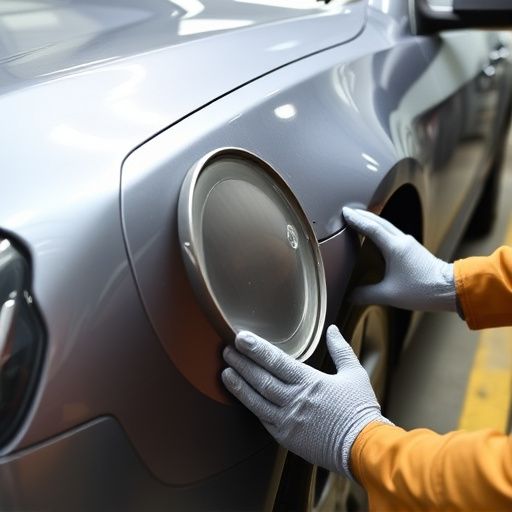
Regular and timely brake system collision check inspections are a best practice for maintaining optimal vehicle performance and safety. These checks ensure that your brakes are functioning at their highest capacity, enabling precise control over your vehicle. During these inspections, professionals thoroughly examine components such as pads, rotors, calipers, and hydraulics for any signs of wear, damage, or dysfunction. Early detection of issues allows for prompt replacement or repair, preventing catastrophic failures during critical maneuvers like sudden stops or evasive actions.
Incorporating scheduled collision checks into your vehicle’s maintenance regimen is a proactive approach to enhancing safety and reducing the risk of costly repairs, including those associated with automotive dent repair or fleet repair services. By addressing brake issues before they escalate, drivers can experience enhanced peace of mind, knowing their vehicles are in top condition. This practice not only benefits individual motorists but also has implications for commercial fleets, where regular collision checks can contribute to improved safety records and reduced downtime due to unexpected breakdowns.
Regular timely brake system collision checks are not just recommended, they’re essential for ensuring safe and reliable vehicle performance. By adhering to best practices and staying proactive with inspections, drivers can significantly reduce the risk of collisions, prolong brake life, and foster a more secure driving experience. Invest in your safety – it’s a drive worth taking.
